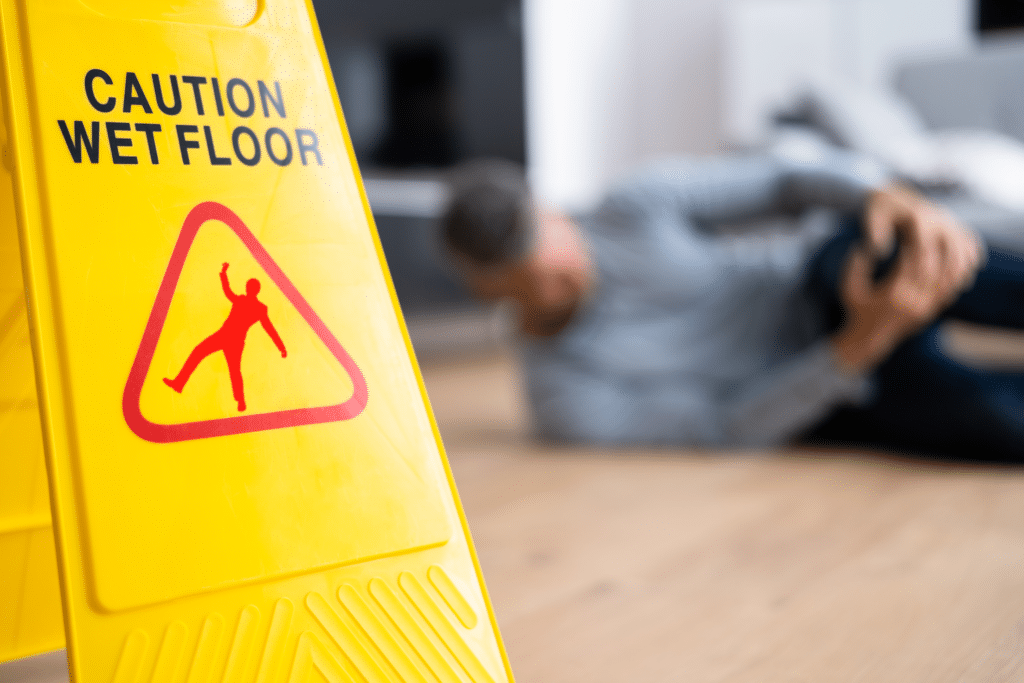
Slip and fall accidents are among the most common types of personal injury cases in New York City. Whether it occurs on a cracked sidewalk, in a poorly maintained building, or on a slippery store floor, a slip and fall can lead to serious injuries that have long-term consequences.
If you’ve been injured in a slip and fall accident in NYC, understanding how to file a personal injury claim is crucial to securing the compensation you deserve.
Understanding How Premises Liability Works in New York
In our state, slip and fall claims fall under the category of premises liability. This legal concept holds property owners and managers responsible for maintaining safe conditions on their property. If they fail to do so and someone is injured as a result, they may be liable for damages.
To successfully file a personal injury claim for a slip and fall in NYC, you must demonstrate that the property owner was negligent. This process typically begins by establishing that the property owner had a duty of care – and again, in New York, property owners are legally required to maintain their premises in a reasonably safe condition to prevent accidents.
Next, you must prove that a dangerous condition existed on the property. This could be anything from a wet floor to a broken stair that directly led to your slip and fall. The presence of this hazard is a key element in your claim.
Additionally, it’s crucial to show that the property owner knew or should have known about the hazardous condition. This could mean proving that the owner was aware of the danger but failed to address it, or that regular maintenance and inspections would have revealed the issue.
Finally, you must establish a direct link between the hazardous condition and your injuries. It’s essential to demonstrate that the dangerous condition was the primary cause of your injuries, ensuring that liability falls on the property owner.
Steps to Take After a New York Slip and Fall Accident
Taking immediate and appropriate action after a slip and fall accident can significantly impact the success of your personal injury claim. Here are the steps you should take:
1. Seek Medical Attention
Your health and safety should be your top priority. Even if your injuries seem minor, it’s essential to seek medical attention immediately. Not only does this ensure you receive the care you need, but it also provides documentation of your injuries, which is crucial for your claim.
2. Report the Incident
Notify the property owner, manager, or landlord about the accident as soon as possible. Ensure that the incident is documented in a written report, and request a copy for your records.
3. Document the Scene
Gather evidence at the scene of the accident. Take photographs of the hazardous condition that caused your fall, such as a wet floor, uneven pavement, or inadequate lighting. If there were any witnesses, collect their contact information as well.
4. Keep Records
Maintain detailed records of all medical treatments, expenses, and any time missed from work due to your injuries. This documentation will be essential in calculating the full extent of your damages.
5. Consult a Personal Injury Attorney
Slip and fall cases can be complex, especially when dealing with insurance companies and proving liability. An experienced NYC personal injury attorney can evaluate your case, guide you through the legal process, and negotiate on your behalf to ensure you receive fair compensation.
Get Help Filing Your New York Personal Injury Claim
Once you’ve taken the necessary steps, your attorney will help you file a personal injury claim against the responsible party. In New York, you typically have three years from the date of the accident to file a claim, but it’s best to act quickly to preserve evidence and build a strong case.

Your attorney will gather all necessary documentation, including medical records, witness statements, and evidence from the scene, to support your claim. They will also negotiate with the property owner’s insurance company to reach a fair settlement. If a settlement cannot be reached, your attorney may advise taking the case to court.









